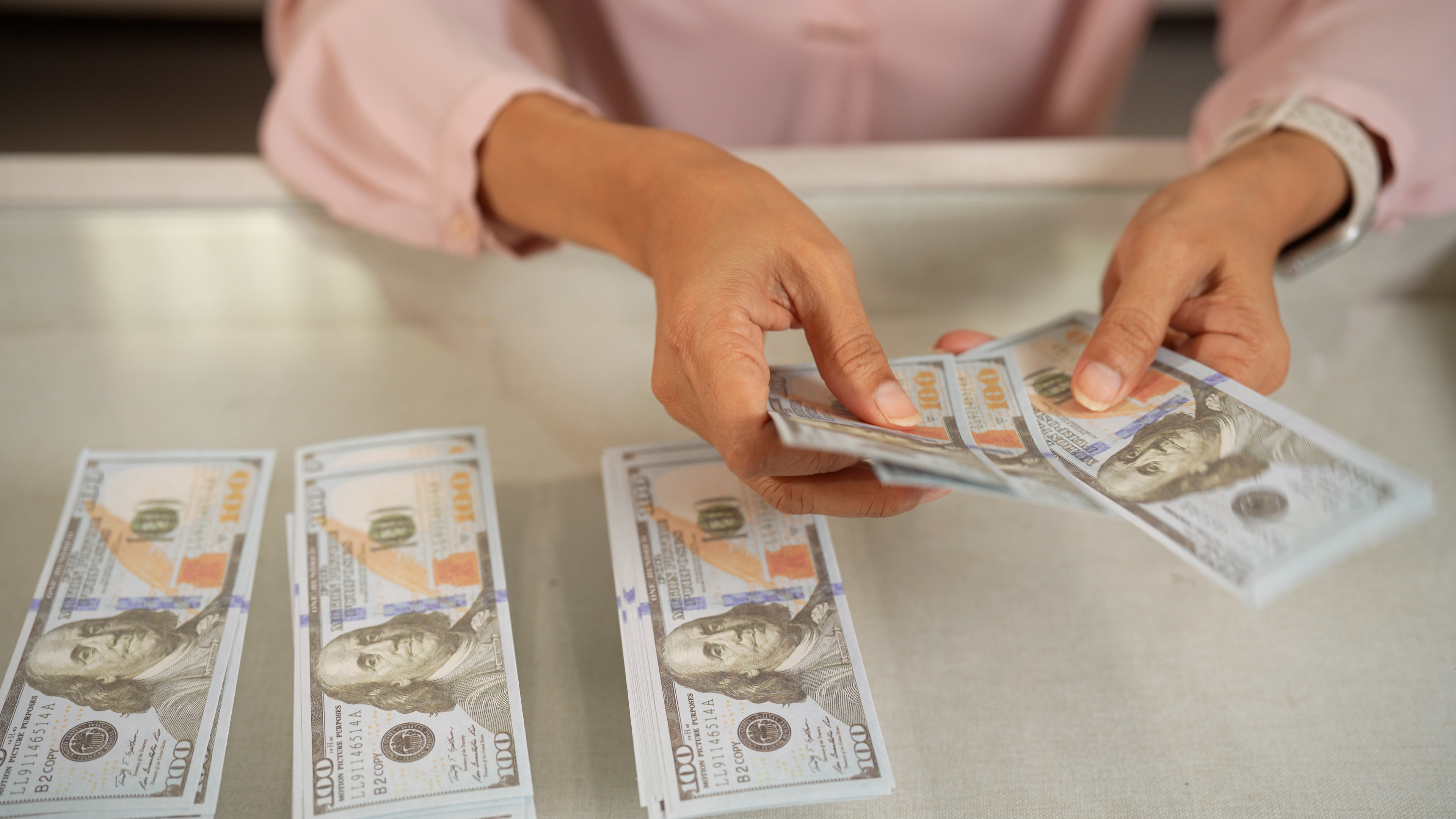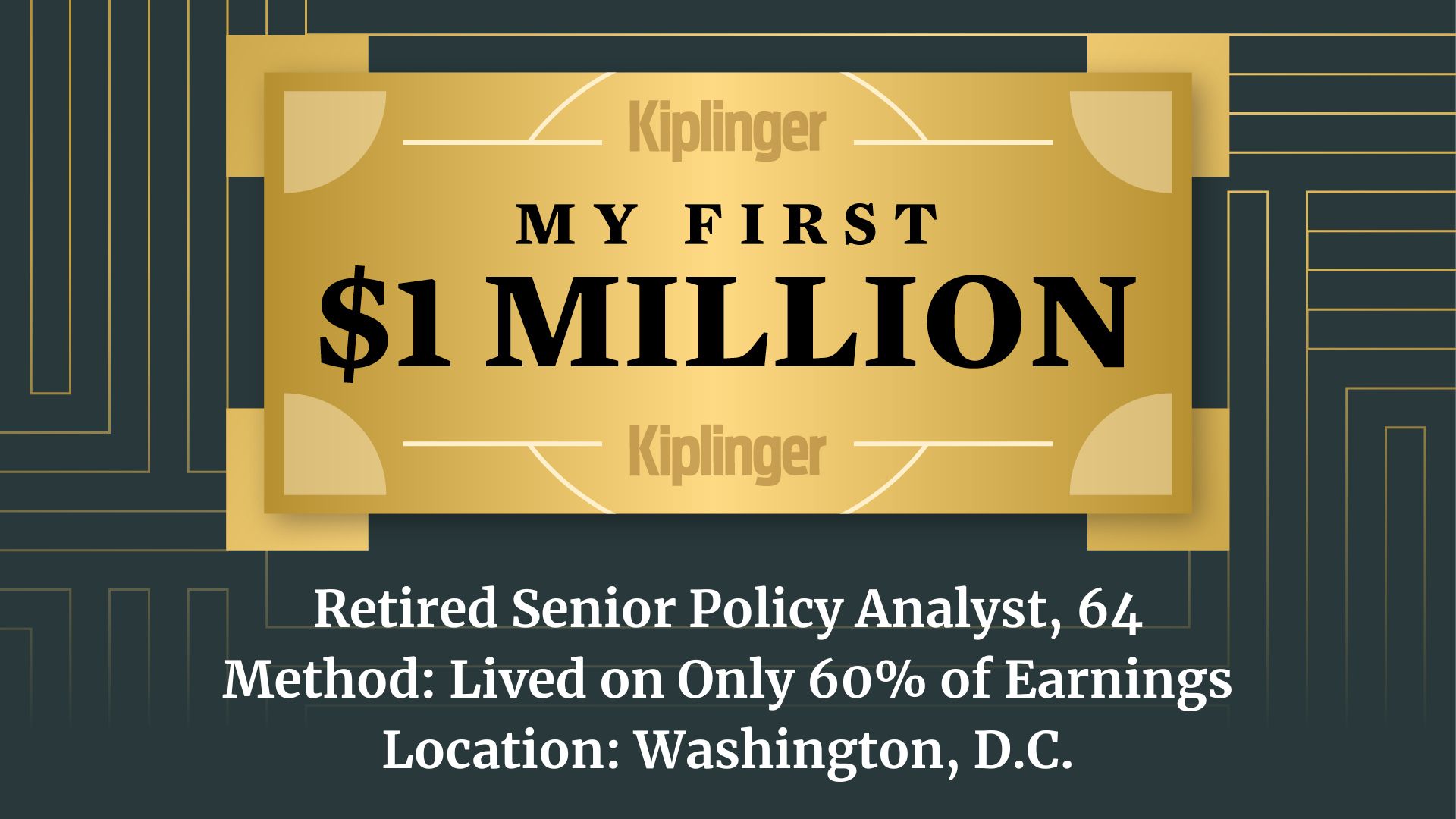I've Got $50,000 Burning A Hole in My Pocket. Where Do I Park It Amid Rate Cuts So I Don't Lose Ground?
Why a mix of CDs can protect $50,000 from shrinking yields.

Profit and prosper with the best of Kiplinger's advice on investing, taxes, retirement, personal finance and much more. Delivered daily. Enter your email in the box and click Sign Me Up.
You are now subscribed
Your newsletter sign-up was successful
Want to add more newsletters?
Question: I have $50,000 saved. Where should I park it before a rate cut happens?
Answer: You'll want to find a savings solution that's resistant to rate cuts. That way, you maximize your savings while rates are still higher. However, you might not have much time to act.
The Federal Reserve cut rates at each of its last three meetings. And while it's likely the Fed won't cut rates at the upcoming January meeting, they might reduce them again later in 2026 if the data show numbers in line with their goals — and after Chair Jerome Powell's term ends in May, as the president has explicitly said he wants to appoint someone who will cut rates.
From just $107.88 $24.99 for Kiplinger Personal Finance
Become a smarter, better informed investor. Subscribe from just $107.88 $24.99, plus get up to 4 Special Issues

Sign up for Kiplinger’s Free Newsletters
Profit and prosper with the best of expert advice on investing, taxes, retirement, personal finance and more - straight to your e-mail.
Profit and prosper with the best of expert advice - straight to your e-mail.
A way to maximize returns and shield against future rate cuts
One route to turn to now that'll protect your money from rate cuts in the near future is CDs.
A certificate of deposit (CD) features a fixed interest rate. Once you lock in your CD rate, it remains in effect for the entire term. The Fed could cut rates multiple times during your term, and it wouldn't impact your savings at all.
Using this tool, powered by Bankrate, can help find options that work best for your needs:
But if you are sitting on a wad of cash, a balanced savings approach can maximize yields now while granting flexibility for future investments.
A strategy that keeps you ahead of the game, with flexibility

One strategy is to open multiple CDs at various terms. Doing so now ensures you lock in higher CD rates to maximize returns. But it also achieves another positive: You'll gain quick access to some of your money.
Here's how it works:
- Put $25,000 in a one-year CD. A top-performing account is Limelight Bank. You'll earn 4.00% with a minimum deposit of $25,000. In that year alone, you'll earn $1,000 effortlessly.
- Deposit $20,000 into a five-year CD. Our top pick is SchoolsFirst Credit Union, with a rate of 4.00%. Over five years, that'll earn you $4,333.06.
- Lastly, place your remaining $5,000 into a no-penalty CD. Farmers Insurance Federal Credit Union offers a rate of 4.00% for a nine-month term. This will net you $149.26 in interest earned for a mere six months.
Overall, this approach helps you earn $5,482.32 for a few minutes of work setting up the accounts. Best of all, you'll only tie up half of your money for the next five years. The rest you'll have back within the year, and you can reconsider investment or savings options, depending on how the market does.
What I would caution with this approach
CDs are generally not a flexible savings tool. Term-based CDs require you to keep your money until maturity, or face substantial withdrawal fees. For shorter-term CDs of a year or less, this could mean losing a few months of interest.
For long-term CDs of five years, this could mean penalties equivalent to up to one year's interest. Only consider this option if you're comfortable locking away $25,000 for five years.
Ultimately, the Fed is unlikely to cut rates when it meets this week. In fact, they might not lower rates again until fall. However, you can adopt strategies that help maximize returns now, while rates are high. This approach keeps you aligned with your goals, regardless of the Fed's actions in the future.
Related content
Profit and prosper with the best of Kiplinger's advice on investing, taxes, retirement, personal finance and much more. Delivered daily. Enter your email in the box and click Sign Me Up.

Sean is a veteran personal finance writer, with over 10 years of experience. He's written finance guides on insurance, savings, travel and more for CNET, Bankrate and GOBankingRates.
-
 Thinking of Switching Phone Carriers? Do These 8 Things First
Thinking of Switching Phone Carriers? Do These 8 Things FirstSwitching carriers is easier than ever, but overlooking the fine print could cost you. Here’s what to check before you make the move.
-
 Samsung Galaxy S26 Ultra: What to Know Before You Upgrade
Samsung Galaxy S26 Ultra: What to Know Before You UpgradeThe Galaxy S26 Ultra brings new features and strong launch deals, but whether it’s worth upgrading depends on what you already own.
-
 Nasdaq Soars Ahead of Nvidia Earnings: Stock Market Today
Nasdaq Soars Ahead of Nvidia Earnings: Stock Market TodayWednesday's risk-on session was sparked by strong gains in tech stocks and several crypto-related names.
-
 What Is an Assumable Mortgage and Could It Save You Thousands?
What Is an Assumable Mortgage and Could It Save You Thousands?With mortgage rates still elevated, taking over a seller’s existing home loan could lower monthly payments — if the numbers work.
-
 Have You Fallen Into the High-Earning Trap? This Is How to Escape
Have You Fallen Into the High-Earning Trap? This Is How to EscapeHigh income is a gift, but it can pull you into higher spending, undisciplined investing and overreliance on future earnings. These actionable steps will help you escape the trap.
-
 I'm a Financial Adviser: These 3 Questions Can Help You Navigate a Noisy Year With Financial Clarity
I'm a Financial Adviser: These 3 Questions Can Help You Navigate a Noisy Year With Financial ClarityThe key is to resist focusing only on the markets. Instead, when making financial decisions, think about your values and what matters the most to you.
-
 Where Olympians Store Their Medals is a Great Lesson For Your Valuables and Cash
Where Olympians Store Their Medals is a Great Lesson For Your Valuables and CashWhat you can learn about protecting your cash and values from where Olympians store their medals.
-
 An Executive's 'Idiotic' Idea: Skip Safety Class and Commit a Federal Crime
An Executive's 'Idiotic' Idea: Skip Safety Class and Commit a Federal CrimeSeveral medical professionals reached out to say that one of their bosses suggested committing a crime to fulfill OSHA requirements. What's an employee to do?
-
 How You Can Use the Financial Resource Built Into Your Home to Help With Your Long-Term Goals
How You Can Use the Financial Resource Built Into Your Home to Help With Your Long-Term GoalsHomeowners are increasingly using their home equity, through products like HELOCs and home equity loans, as a financial resource for managing debt, funding renovations and more.
-
 How to Find Free Money for Graduate School as Federal Loans Tighten in 2026
How to Find Free Money for Graduate School as Federal Loans Tighten in 2026Starting July 1, federal borrowing will be capped for new graduate students, making scholarships and other forms of "free money" vital. Here's what to know.
-
 My First $1 Million: Retired Senior Policy Analyst, 64, Washington, D.C.
My First $1 Million: Retired Senior Policy Analyst, 64, Washington, D.C.Ever wonder how someone who's made a million dollars or more did it? Kiplinger's My First $1 Million series uncovers the answers.